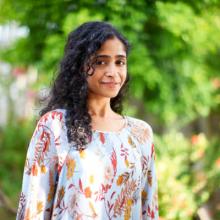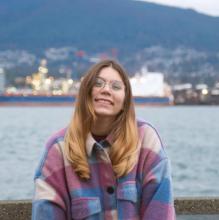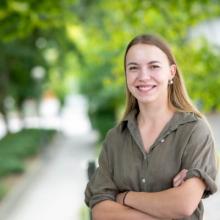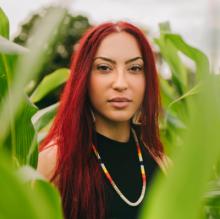To rethink what it means to manage the Mekong River respectfully, sustainably, and inclusively is to carve out decolonized spaces within the river management and conservation field. Rapichan’s work bridges engaged ethnographic research with public policy, seeking to reconceptualize environmental flows management toward caring for rivers and to support Mekong grassroots movements in defending their biocultural rights.
Research Description
Rivers worldwide are facing serious threats from dam development and other water infrastructures that fragment rivers and obstruct their ecological connectivity. Environmental flows (EF) management presents an important opportunity to establish a more socially and ecologically sustainable water regime, but its practice has historically been exclusionary of local communities, technocratically driven by outside experts, and lacking river flows’ social and cultural dimensions. To enhance river conservation and governance, my research brings together EF science and more-than-human, feminist, and decolonial scholarships to rethink human-river relations and to reconceptualize environmental flows toward caring for rivers and nurturing the web of relations they support, including supporting biocultural diversity and rights (i.e., rights to preserve the coupled biophysical and cultural integrity). My fieldwork is situated in the Mekong River context, where I plan to bridge engaged ethnographic research with public policy. To rethink what it means to manage the Mekong River respectfully, sustainably, and inclusively is also to carve out decolonized spaces within the river management and conservation field. I will work with a network of Mekong grassroots communities to understand critical relationships associated with river flows and to identify flow strategies that nourish relations with the Mekong across space and time.
What does being a Public Scholar mean to you?
The formal recognition of being a Public Scholar means my work is being acknowledged and valued for its potential to advance knowledge and to contribute positively to our society and environment. It gives me a sense of belonging that I am among peers, who are committed to addressing social and/or environmental problems and taking risks (creative or otherwise) doing so through their PhD research.
In what ways do you think the PhD experience can be re-imagined with the Public Scholars Initiative?
PSI opens up possibilities to engage with work that might be traditionally deemed as “non-academic” or “unscientific,” such as combining policy engagements with rigorous research (perhaps too political?) or mixing methodologies between the humanities and the sciences (perhaps too difficult to evaluate the validity and other quality standards?). There are many ways of knowing and producing valuable knowledge, and since all knowledge is situated, the re-imagining of PhD research creates spaces for new collaborations, new ways of producing knowledge and making a difference, and possibly new standards for evaluating “good” scientific knowledge.
How do you envision connecting your PhD work with broader career possibilities?
My interdisciplinary research straddles multiple fields, including biocultural diversity conservation, river governance and management, political ecology, science and technology, and decolonial studies. The project itself involves both ethnographic work and policy analysis with a PSI-sponsored component to design and deliver workshops for community members. My hope is to translate insights from critical scholarly research into proposals for change. These components taken together aim to train the observant and critical eye while cultivating the skills in facilitation, mediation, and bridge building, which are important for knowledge mobilization. These are also transferable skills for conservation research within and beyond academia as well as for project coordination.
How does your research engage with the larger community and social partners?
I engage with Mekong riparian community members as co-knowledge producers, and plan to collaborate with a network of NGOs/civil society groups and natural and social scientists on the policy component as well as for knowledge mobilization.
Why did you decide to pursue a graduate degree?
Pursuing a graduate degree at a master’s level was never a question. I have the privilege to do so to enhance my career opportunities and my pay grade. The decision to pursue a PhD is rooted in my love for research and a drive to understand social-ecological problems around river conservation and management better. Higher education is important, but upon further reflections, I think society puts too much weight on these degrees (this is understandably partly field-specific), especially at the expense of disqualifying or dismissing the knowledge and skills of qualified individuals who could not, or choose not to follow the path of formal education. I always am humbled when conducting fieldwork and learning about local ecologies from the communities I work with.
Why did you choose to come to British Columbia and study at UBC?
I initially came to UBC as an undergraduate in economics because of its overall academic excellence, international recognition, and scholarship opportunities for international students. I immediately felt in love with the city and established a strong sense of community, particularly through the hard work of the International Student Advising (formerly International House; admittedly I miss having that safe and welcoming space at the old I-House building). Returning to UBC as a graduate student was like a bird returning to her old nest. I’m currently at the Institute for Resources, Environment and Sustainability (IRES) and I’ve never felt as much at home (intellectually) as I do now. I’m always inspired by the faculty, post-docs, and my peers, as well as very appreciative of the support of IRES staff.




